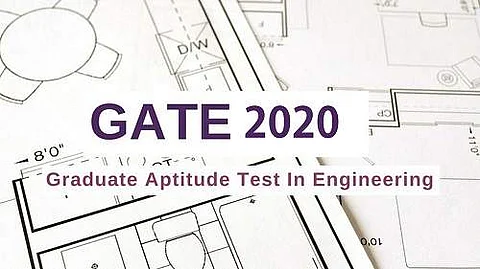

A new paper Biomedical Engineering (BM) in Graduate Aptitude Test in Engineering (GATE) is introduced from the year 2020. This is expected to unify undergraduate syllabus of Biomedical Engineering among several universities, and to help stimulating the growth of BME research and product development in India.
The BME Sector in India is in need of a major development mainly due to the lack of adequate integration between research institutions, hospitals, industries, and universities in India. Clinicians and engineers work in isolation without collaborating with each other and other stakeholders.
The challenges of BME graduates in India were discussed in a recent meeting held at IIT Madras, which is organized by Biomedical Engineering Group of Applied Mechanics Department, IIT Madras, along with representatives from several other IITs. The meeting was chaired by Prof. V. Jagadeesh Kumar, Dean (Academic Courses), IIT Madras, and co-chaired by Prof Neelesh Vasa who was the GATE Chairman last year.
After analysing the issues, it was decided to propose a new GATE paper for BME to solve some of the issues. In the recent times, GATE has become the gateway for not only for various higher education but is also considered for entering Government institutions such as Public Sector Undertakings, Defence Research and Development Organization (DRDO) Laboratories, and Indian Council of Medical Research (ICMR) Centers in India besides a few educational institutes abroad.
Speaking about the importance of this new GATE paper in Biomedical Engineering, Prof M Manivannan, Biomedical Engineering Group, Department of Applied Mechanics, IIT Madras, said, “This is a boon for everyone working in healthcare in India. This has potential to make the Biomedical Engineering as the most sought-out program in India as in other parts of the world.”
As the organiser of the meeting, Prof M Manivannan noted, “Although IIT Madras organized this meeting, credit goes to all sister IITs that participated in the consultation, without which the new GATE paper would not be possible at all. This is a team effort.”
The committee that met at IIT Madras proposed a syllabus that emphasized the fundamentals required for the BME graduates. Until now, Biomedical Engineering graduates could write two papers in GATE: IN (Instrumentation and Engineering), and EC (Electronics and Communication Engineering), which were closer to BME curriculum.
In order to appear in any of the two streams (IN or EC), BME graduates need to prepare much more than their curriculum and compete with graduates from other streams in which the other students have specialized. Therefore, chances of BME students getting good ranks in GATE proved challenging. This reduced the chance of their higher studies and affected the medical device development in India.
The organizing institute for GATE 2020 is IIT Delhi and the syllabus for the new GATE paper can be found at: http://gate.iitd.ac.in/
Medical instruments and equipment are vital for Modern medical practice. Chennai, as the healthcare capital of India, gets many advanced medical equipment released here before anywhere in the world. However, Biomedical Engineering, the backbone of medical instruments and equipment, is in need of more skilled manpower. This leads to dependence on the foreign manufacturers for repairing the equipment here in India. This new GATE paper in BME is intended to be one step in helping address this issue.
